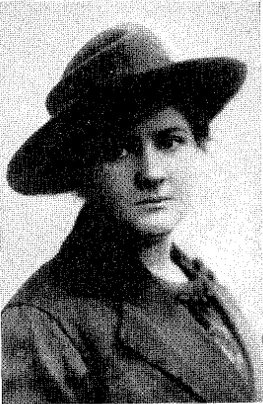Rosa Nevodovska: Essay
Rosa Nevodovska's "Yam" from her book Azoy vi ikh bin
An Essay by Etai Rogers-Fett.
After interviewing Rosa Nevadovska in 1939, Yiddish journalist S. Tenenboym wrote in Literarishe bleter that his visit to her California home had been dually motivated by wanting to “get to know Nevadovska and the [Pacific ocean.]” In Tenenboym’s subsequent descriptions, the two personalities – Nevadovska and the sea – are intricately linked and often indistinguishable. The poet and her watery muse both appear “sensitive,” “moody,” capable of deep feeling and rapid changes in emotion.
While Tenenboym’s association of Nevadovska with the ocean was in part informed by his own gendered conceptions of the lonely, romantic female poet, he touches upon a key theme of Nevadovska’s Los Angeles poetry. Nature is strangely absent from Nevadovska’s poems about her childhood in Bialystok and her time spent working in New York, yet the natural landscape is a constant presence in her Los Angeles poetry. "Der yam (the sea)," in particular, is a central character and metaphor in many of her works, occupying an entire chapter in Nevadovska’s collection Azoy vi ikh bin. The ocean was certainly an accessible source of inspiration to Nevadovska, as her Venice apartment offered her a direct view of the Pacific.
But Nevadovska’s appreciation of the ocean goes beyond celebrating its beauty to seeing it as a reflection of the self she struggled to define. As an immigrant, Nevadovska identifies with the ocean waters tasked with traveling from shore to distant shore, feeling her own sense of existing between cultures echoed by the “endless unrest” of the sea. Yet in intimately identifying with the sea’s detachment from a single land, Nevadovska paradoxically creates a strong sense of place in her work, adopting the Pacific coast landscape to express her feelings as an artist and a Jewish American immigrant. Thus, the sea in Nevadovska’s work comes to represent both her relationship to her new home and the constant pull of the other homes she has left behind: she imagines herself as at once “anchored” by “the shores of the Pacific” and flying over the same waters to her family in Bialystok.
Like her status as a Jewish immigrant, Nevadovska’s labor Zionism constituted an integral part of her identity and shaped the communities she associated with in Los Angeles. In contrast to the more explicit and less literary ideological content in her New York poems, the Socialist and Zionist sentiments in Nevadovska’s Los Angeles poems are often symbolic in nature and utilize the natural landscape as metaphor. In many of her poems, Nevadovska is concerned with the ability of the natural world to transcend national boundaries – a truth that both reflected her own problematized idea of homeland and affirmed her Socialist internationalism. Drawing upon the coastal landscape around her for inspiration, Nevadovska envisions the sea as the ultimate physical expression of the unity of humankind. Instead of viewing the world’s oceans as vast distances separating families split up by immigration and cultures divided by national allegiance, Nevadovska regards the sea as a connecting force, bringing the “[beaches] of the world … near” to one another.
| Previous page on path | Rosa Nevodovska, page 1 of 7 | Next page on path |

Discussion of "Rosa Nevodovska: Essay"
Add your voice to this discussion.
Checking your signed in status ...